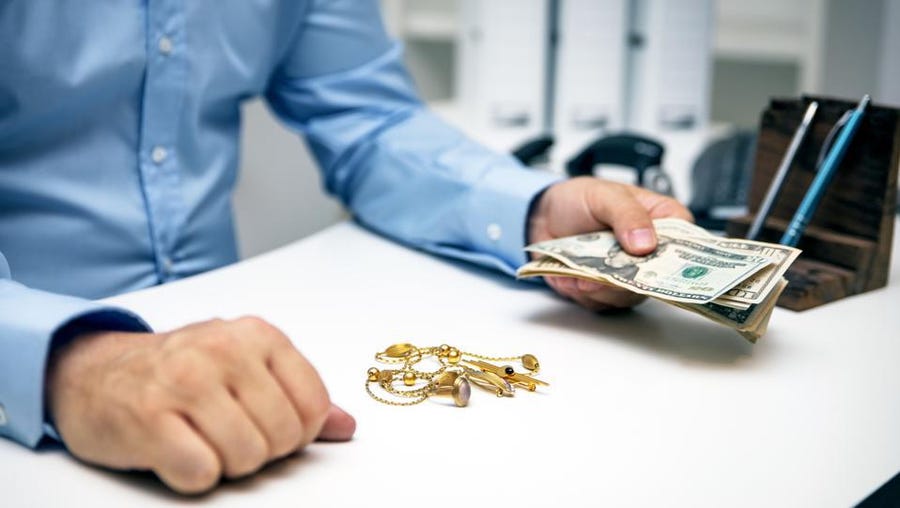
Pawn shop loans are an option if you need some quick cash. While they do offer some advantages, they also come with drawbacks. Before you decide to pawn your great-grandfather’s watch, understand the pros and cons of pawn shop loans — and think about the alternatives.
When you take something of value to a pawn shop, chances are you can walk out with some cash. Let’s take a closer look at how pawn shop loans work, and what the benefits and drawbacks are.
Unlike a personal loan, a pawn loan can be a quick way to borrow money because it doesn’t involve a credit check or application process. Your loan amount is based on the value of the item you pawn.
For instance, if you own a name-brand guitar, you may bring it to a pawn shop so that a pawn broker can figure out its value. Once its value has been determined, the pawnbroker may give you a loan for an amount up to the appraised value of the guitar.
Terms for pawn shop loans vary and often include high interest rates. This is why some states have stepped in to regulate the industry.
If you move forward with a pawn shop loan, you can get the cash right then and there. You’ll typically be required to pay back the full amount of the pawn loan to reclaim your pawned item, though the amount of time you have to repay the loan can vary from state to state.
For example: In Florida and North Carolina, state laws dictate that pawn shop loan contracts are 30 days, with an additional grace period. According to the National Pawnbrokers Association, the average pawn shop loan in the U.S. is $150.
Pawn shops have recently gone digital, with sites like Pawngo saying they lend up to $5 million for the right items. You can pawn a variety of high-demand valuables — anything from collectable coins to cars.
Pawn shop loans can be an attractive option if your credit is rough and you’re not able to take out a traditional loan.
For people with no bank account or no one to turn to as a cosigner, pawn loans can be a quick source of money — there’s no credit check required.
In addition, your credit scores won’t be affected if you don’t repay your loan, and you won’t have to worry about getting calls from debt collectors. The consequences of not repaying a pawn shop loan are that the pawn shop simply keeps whatever you pawned.
The most significant drawback of a pawn shop loan is its cost.
Interest rates and finance charges for pawn shop loans are often high. It’s common to see interest rates between 5% and 25% a month.
Another disadvantage is that if you don’t repay your loan on time, the pawn shop can sell your item. And you won’t get reimbursed if your item is sold for more than your loan amount.
Some pawn shops also charge additional fees to pay for things like storage, insurance or renewing the loan for a new term.
And pawn shops can be a little sketchy. Legal actions against pawn shops aren’t exactly rare — the Consumer Financial Protection Bureau has taken action against a number of pawn brokers, alleging they were dishonest about the annual costs of loans.
Leave a reply